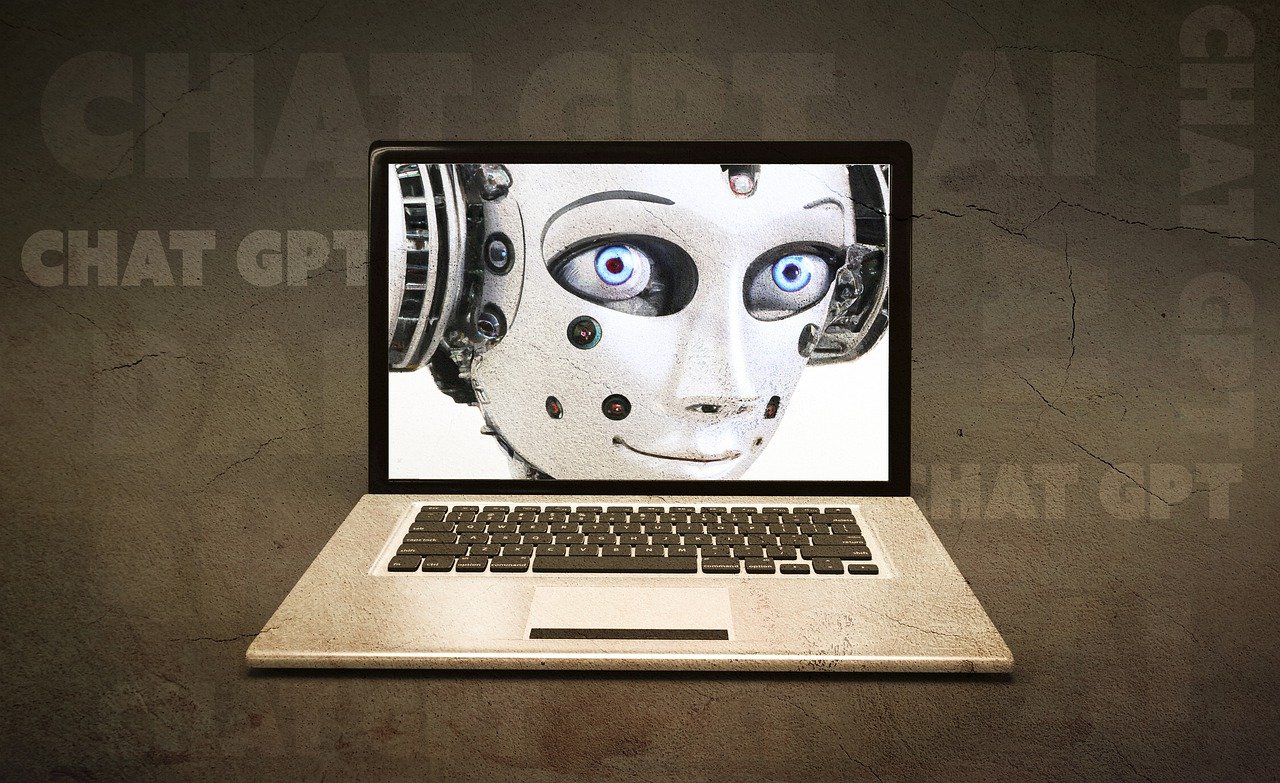Epistemology in the Age of Brain-Computer Interfaces
In a world where technology is evolving at breakneck speed, the emergence of brain-computer interfaces (BCIs) has sparked a revolution in how we think about knowledge and understanding. Imagine a scenario where your thoughts can directly interface with machines, allowing for instantaneous communication and interaction. This isn't science fiction anymore; it's becoming a reality. As we dive into the complex waters of epistemology—the study of knowledge—it's crucial to explore how these groundbreaking technologies challenge our traditional notions of knowledge, perception, and consciousness.
The intersection of BCIs and epistemology raises profound questions. What does it mean to "know" something when our cognitive processes can be enhanced or altered by machines? Can we trust our perceptions when they can be manipulated at the neural level? These questions are not just academic; they touch the very essence of our human experience. As we navigate this uncharted territory, we find ourselves at a crossroads, where the boundaries of human cognition and machine processing begin to blur.
As BCIs develop, they bring forth a new paradigm that compels us to rethink the foundations of knowledge. Traditionally, knowledge has been understood through the lens of experience, perception, and reasoning. However, with the integration of technology directly into our cognitive processes, we must ask ourselves: Is knowledge still the same if it can be artificially enhanced or even fabricated? The implications of this are both exciting and terrifying, as we stand on the brink of a new era in human cognition.
In this article, we will explore the multifaceted relationship between epistemology and BCIs, examining how these innovations not only redefine our understanding of knowledge but also challenge our very existence as human beings. Buckle up, because this journey through the mind and machine is just getting started!
As BCIs blur the lines between human cognition and machine processing, it is essential to reevaluate what constitutes knowledge and how it is acquired in this evolving landscape. Knowledge, traditionally viewed as a product of human experience and reasoning, is now subject to transformation through technology. This shift prompts us to reconsider the sources of our knowledge and the validity of our understanding in a world increasingly dominated by digital interfaces.
In a digital era, the acquisition of knowledge is no longer a linear process. Instead, it resembles a vast network where information is continuously flowing and evolving. With BCIs, individuals can access data and insights in real-time, creating a dynamic relationship between the user and the information. However, this raises questions about the authenticity of knowledge gained through such means. Are we truly learning, or are we merely consuming information? The distinction is critical, as it affects our ability to critically engage with knowledge and form genuine understanding.
BCIs have the potential to alter human perception, leading to questions about the reliability of sensory experiences and how they shape our understanding of reality and truth. Imagine experiencing a world where your senses can be heightened or muted by a simple command to a machine. Such capabilities challenge the very foundation of how we perceive our surroundings and interpret the information we receive.
Experience remains a cornerstone of epistemology, but with BCIs, the nature of experiential knowledge is transformed, prompting a reexamination of its validity and significance. As we integrate technology into our cognitive processes, the authenticity of our experiences comes into question. Are we genuinely experiencing the world, or are we merely receiving curated inputs from a machine? This dilemma forces us to confront the essence of what it means to know something.
As BCIs offer augmented experiences, we must consider how these enhancements affect our ability to discern genuine experiences from artificially constructed ones. The line between reality and simulation becomes increasingly blurred, leading to existential questions about our identity and the nature of our experiences. How do we navigate a world where our perceptions can be manipulated, and what does this mean for our understanding of truth?
Traditional epistemological frameworks may struggle to accommodate the complexities introduced by BCIs, necessitating new models that reflect the hybrid nature of human and machine cognition. The conventional definitions of knowledge, belief, and justification may no longer suffice in a world where technology plays a pivotal role in shaping our understanding. We must innovate and adapt our epistemological theories to encompass the realities of an increasingly intertwined existence.
The integration of BCIs raises profound questions about consciousness and self-identity, challenging our understanding of what it means to be human in a technologically mediated environment. As we enhance our cognitive capacities through machines, we must confront the implications for our sense of self. Are we still the same individuals if our thoughts and perceptions can be altered externally? This inquiry delves deep into the philosophy of mind and the essence of human identity.
The advancement of BCIs brings forth ethical dilemmas regarding privacy, autonomy, and the implications of altering human cognition, demanding careful scrutiny from epistemological perspectives. As we venture into this new territory, we must consider the ethical ramifications of our choices. What responsibilities do developers have in ensuring that these technologies are used ethically and responsibly? How do we protect individual autonomy in a world where thoughts can be influenced or manipulated?
Informed consent in the context of BCIs is complex, as individuals must navigate the nuances of cognitive liberty and the implications of their choices on personal identity and autonomy. The ability to alter one's cognitive processes raises questions about ownership of thoughts and the right to privacy. How do we ensure that individuals are fully aware of the implications of using such technology, and how do we safeguard their cognitive freedom?
With the ability to influence thoughts and perceptions, BCIs pose risks of knowledge manipulation, raising concerns about the integrity of information and the authenticity of personal beliefs. As we become more reliant on technology for our cognitive processes, the potential for misinformation and manipulation increases. This reality necessitates a reexamination of our understanding of knowledge and truth in a world where the line between fact and fiction can be easily blurred.
As BCIs continue to evolve, the future of epistemology will likely involve integrating insights from neuroscience, philosophy, and technology, paving the way for a comprehensive understanding of knowledge in a BCI-enhanced world. The journey ahead is filled with possibilities, but it also requires us to tread carefully. By fostering a dialogue between various disciplines, we can navigate the complexities of knowledge in an age where the mind and machine are increasingly intertwined.
- What are brain-computer interfaces (BCIs)? BCIs are technologies that enable direct communication between the brain and external devices, allowing for enhanced cognitive functions.
- How do BCIs affect our understanding of knowledge? BCIs challenge traditional notions of knowledge by altering how we acquire and perceive information.
- What ethical dilemmas are associated with BCIs? Ethical concerns include privacy, autonomy, and the potential for knowledge manipulation.
- Can BCIs change our sense of self? Yes, BCIs can influence our consciousness and identity, raising profound questions about what it means to be human.

The Nature of Knowledge in a Digital Era
As we step into this digital age, where technology intertwines seamlessly with our daily lives, the very essence of knowledge is undergoing a remarkable transformation. With the advent of Brain-Computer Interfaces (BCIs), our traditional understanding of knowledge is being challenged. What does it mean to know something when machines can process information at lightning speed, often faster than we can comprehend? This intersection of human cognition and machine intelligence forces us to rethink the foundations of knowledge itself.
In the past, knowledge was often seen as a static entity, something that could be acquired through experience, education, or observation. However, as BCIs enable direct communication between our brains and external devices, the lines begin to blur. Knowledge is no longer just a collection of facts; it becomes a dynamic interplay of experience, perception, and interaction with technology. Imagine a world where you can instantly access information or skills simply by thinking about them—this is not science fiction; this is the potential reality of BCIs.
Moreover, we must consider the implications of knowledge acquisition in this new landscape. Traditionally, our understanding of knowledge was rooted in empirical experiences. We learned through doing, observing, and reflecting. But with BCIs, the nature of these experiences is evolving. For instance, if a BCI allows you to experience a moment that you never lived through, is that experience valid? Can it be considered knowledge? This leads us to a pivotal question: What constitutes genuine knowledge in the context of augmented experiences?
To illustrate this point, consider the following table that contrasts traditional knowledge acquisition with knowledge gained through BCIs:
| Aspect | Traditional Knowledge Acquisition | Knowledge Acquisition via BCIs |
|---|---|---|
| Source | Experience, Observation | Direct Brain Interaction, Machine Processing |
| Nature | Static, Contextual | Dynamic, Contextual and Non-contextual |
| Validity | Empirical, Personal | Potentially Artificial, Shared |
This table highlights the stark differences in how we might acquire knowledge in a world influenced by BCIs. As we analyze these shifts, we must also grapple with the philosophical implications of such changes. If knowledge can be artificially created or manipulated, how do we maintain the integrity of our understanding? Furthermore, as we rely on BCIs for knowledge, do we risk losing our intrinsic ability to learn and adapt?
In conclusion, the nature of knowledge in this digital era is not just evolving; it is being revolutionized. The advent of BCIs compels us to rethink the very foundations of epistemology. As we navigate this uncharted territory, it is crucial to engage in discussions that address these profound changes. How do we define knowledge in a world where the boundaries between human cognition and machine intelligence are increasingly blurred? The answers may shape the future of education, personal identity, and our understanding of reality itself.
- What are Brain-Computer Interfaces? BCIs are technologies that facilitate direct communication between the brain and external devices, allowing for interaction without the need for physical movement.
- How do BCIs change our understanding of knowledge? BCIs challenge traditional notions of knowledge by enabling new forms of experience and information acquisition, prompting us to reconsider what it means to know something.
- Are experiences gained through BCIs considered valid knowledge? This is a complex question, as it depends on how we define knowledge and the context in which these experiences are perceived.

Redefining Perception Through Technology
In our rapidly evolving world, brain-computer interfaces (BCIs) are not just futuristic gadgets; they are reshaping the very fabric of human perception. Imagine a scenario where your thoughts could directly influence digital landscapes, or where sensory experiences could be enhanced or even created by machines. This is not science fiction; it’s the reality we are stepping into. As BCIs become more integrated into our lives, we must confront the question: how do these technologies alter our understanding of perception?
Traditionally, perception has been defined as the process through which we interpret sensory information. However, with the advent of BCIs, this definition is becoming increasingly complex. For example, consider the following:
- Enhanced Vision: BCIs can potentially provide users with augmented reality experiences that overlay digital information onto the physical world. This blurs the boundaries between what is real and what is artificially constructed.
- Direct Brain Stimulation: Imagine a device that can stimulate your brain to evoke specific sensory experiences, such as taste or touch, without any external stimuli. This raises profound questions about the authenticity of our sensory experiences.
- Shared Experiences: BCIs may enable individuals to share their sensory experiences with others, creating a communal perception that is both shared and subjective. How do we then define individual reality?
These advancements prompt us to rethink the reliability of our senses. If technology can manipulate our perceptions, how do we determine what is genuinely experienced versus what is artificially induced? The implications of this are staggering. Our understanding of reality and truth is at stake, as technology begins to play a role in shaping our perceptions.
Moreover, the integration of BCIs into daily life could lead to a phenomenon where individuals become increasingly reliant on technology for their sensory experiences. This dependence might dilute the authenticity of our perceptions, as we may begin to favor enhanced or altered experiences over natural ones. The question arises: will we lose touch with our inherent ability to perceive the world as it truly is?
As we navigate these uncharted waters, it is crucial to consider the implications of redefining perception through technology. We stand at a crossroads where our understanding of knowledge, experience, and reality is being challenged and transformed. The intersection of BCIs and perception invites us to engage in a deeper conversation about what it means to be human in an age where technology can not only enhance our experiences but also redefine them entirely.
Q: How do BCIs affect our perception of reality?
A: BCIs can alter our sensory experiences by providing augmented or virtual realities, which may blur the lines between genuine experiences and those created by technology.
Q: Can BCIs enhance our cognitive abilities?
A: Yes, BCIs have the potential to enhance cognitive functions, allowing for improved memory, learning, and even sensory perception.
Q: What are the ethical implications of altering perception through BCIs?
A: The ethical implications include concerns about authenticity, autonomy, and the potential for manipulation of experiences, which raises questions about personal identity and freedom of thought.

The Role of Experience in Knowledge Acquisition
Experience has long been considered the bedrock of knowledge acquisition, serving as the bridge between abstract concepts and tangible understanding. In our traditional view, we often rely on our personal experiences to shape our beliefs and inform our decisions. However, with the advent of brain-computer interfaces (BCIs), this understanding is being challenged in profound ways. Imagine a world where your thoughts can be enhanced or altered by technology—how does that impact the authenticity of your experiences? Is it still your knowledge if it’s been influenced by an external device?
BCIs have the potential to transform our experiences from something inherently personal into a shared or manipulated phenomenon. This raises critical questions about the validity of experiential knowledge. For instance, when a BCI enhances your cognitive abilities, are you truly learning, or are you merely receiving information in a more efficient manner? The distinction is crucial because it determines whether the knowledge gained is genuinely yours or a byproduct of technological intervention.
To illustrate this, consider the following scenarios:
- Enhanced Learning: A student uses a BCI to absorb information at an accelerated pace. While the student may achieve high grades, can we equate this to true understanding?
- Shared Experiences: Two individuals equipped with BCIs experience a concert together, but one person’s emotions are artificially enhanced. How does this affect their shared memory of the event?
These scenarios highlight a fundamental shift in how we perceive knowledge acquisition. As BCIs become more integrated into our lives, the essence of experience may evolve into something more complex, requiring us to rethink the criteria by which we judge knowledge. The traditional epistemological frameworks that emphasize personal experience may struggle to accommodate these new realities, pushing us to explore hybrid models that reflect the interplay between human cognition and machine enhancement.
Moreover, the implications of augmented experiences are significant. They challenge our understanding of authenticity and originality in knowledge. When experiences can be artificially constructed or enhanced, how do we discern what is real? In a world where BCIs can simulate memories or emotions, the line between genuine experience and technological fabrication blurs. This leads us to question not just the nature of knowledge, but also the integrity of our personal identities.
In conclusion, while experience remains a cornerstone of knowledge acquisition, the integration of BCIs compels us to reassess its role. The transformation of experiential knowledge in this digital age is not merely an academic exercise; it has profound implications for our understanding of ourselves and the world around us. As we navigate this evolving landscape, we must remain vigilant about the authenticity of our experiences and the knowledge we derive from them.
- What is a brain-computer interface (BCI)? A BCI is a technology that enables direct communication between the brain and an external device, often enhancing cognitive functions.
- How do BCIs affect knowledge acquisition? BCIs can alter the way we experience learning and memory, potentially changing what we consider to be authentic knowledge.
- Are augmented experiences real? Augmented experiences can blur the line between genuine and artificially constructed experiences, challenging our understanding of reality.
- What ethical considerations arise from BCIs? Ethical dilemmas include issues of privacy, autonomy, and the implications of altering human cognition.

Augmented Experiences and Their Implications
In the rapidly evolving landscape of brain-computer interfaces (BCIs), the concept of augmented experiences emerges as a fascinating yet complex phenomenon. Imagine wearing a device that enhances your senses—transforming the way you perceive the world around you. This isn’t science fiction; it’s becoming our reality. However, as we delve deeper into this realm, we must grapple with the implications of such enhancements. How do these augmented experiences shape our understanding of authenticity and reality?
To understand the implications of augmented experiences, we first need to acknowledge the potential for enhanced perception. BCIs can amplify sensory input, allowing individuals to experience sights, sounds, and even emotions in ways previously thought impossible. For instance, a musician might use a BCI to enhance their auditory perception, allowing them to hear nuances in music that would otherwise go unnoticed. While this can lead to greater creativity and expression, it also raises questions about the nature of genuine experience. Are these heightened sensations truly authentic, or are they merely artificial constructs?
Moreover, the distinction between real and augmented experiences becomes increasingly blurred. Consider this: if a person can experience a virtual landscape through a BCI that feels just as real as a walk in the park, how do we determine what is 'real'? This is where the implications become profound. Our traditional understanding of knowledge, which relies heavily on sensory experience, must be reevaluated. Are we still acquiring knowledge in the same way, or are we merely participating in a simulation of experience?
Another significant aspect to consider is the potential for addiction to augmented experiences. With BCIs providing a constant stream of enhanced stimuli, individuals may find themselves gravitating towards these artificial experiences over genuine interactions. This could lead to a societal shift where people prioritize virtual experiences over real-life connections. The implications for mental health and social structures could be staggering, as we risk losing touch with the authenticity of human interaction.
Furthermore, the ethical considerations surrounding augmented experiences are vast. Who controls the technology that enhances our perceptions? What happens when these enhancements are used for manipulation or coercion? As we navigate this new terrain, it’s crucial to establish frameworks that ensure these technologies are used responsibly and ethically. We must ask ourselves: how can we balance the benefits of augmented experiences with the need for genuine human connection and understanding?
In conclusion, while BCIs offer exciting possibilities for augmented experiences, they also challenge our fundamental notions of knowledge, reality, and authenticity. As we continue to explore this frontier, we must remain vigilant about the implications these technologies hold for our perception and understanding of the world around us. The journey into augmented experiences is just beginning, and it’s a path that demands careful consideration and thoughtful dialogue.
- What are brain-computer interfaces (BCIs)? BCIs are technologies that enable direct communication between the brain and external devices, often used to enhance or restore sensory and cognitive functions.
- How do BCIs affect our perception? BCIs can alter and enhance sensory experiences, leading to questions about the authenticity of these experiences and their impact on our understanding of reality.
- Are augmented experiences safe? While BCIs can provide significant benefits, they also pose risks, including potential addiction and ethical concerns regarding manipulation and control.
- What are the ethical implications of BCIs? Ethical considerations include privacy, cognitive liberty, and the potential for knowledge manipulation, necessitating careful scrutiny as these technologies develop.

Limitations of Traditional Epistemology
Traditional epistemology, which has long served as the backbone of our understanding of knowledge, faces significant limitations in the wake of brain-computer interfaces (BCIs). At its core, epistemology seeks to answer fundamental questions about what knowledge is, how we acquire it, and the criteria that validate it. However, as BCIs increasingly blur the lines between human cognition and machine processing, these age-old frameworks struggle to keep pace with the complexities introduced by this technological evolution.
One of the most glaring limitations is the reliance on subjective experience as a primary source of knowledge. In a world where BCIs can enhance or even alter sensory input, the very foundation of experiential knowledge becomes questionable. For example, if a BCI can provide a user with a sensory experience that feels entirely real yet is artificially constructed, how do we determine the authenticity of that experience? This leads us to ponder whether traditional epistemological models, which often prioritize lived experience, can adequately account for knowledge gained through technologically mediated means.
Moreover, traditional epistemology often assumes a clear distinction between the knower and the known. However, BCIs challenge this dichotomy by integrating human cognition with machine processes. This integration raises profound questions about the nature of agency and autonomy. If a machine can influence thought patterns or perceptions, what does it mean for human knowledge? Are we still the authors of our own understanding, or are we merely conduits for information processed through a technological lens?
To illustrate the limitations of traditional epistemology in the context of BCIs, consider the following table:
| Traditional Epistemology | Challenges Posed by BCIs |
|---|---|
| Focus on subjective experience | Experience can be artificially enhanced or altered |
| Clear knower/known distinction | Integration of human cognition with machines blurs this line |
| Emphasis on individual agency | Potential for external manipulation of thoughts and beliefs |
As we navigate this new terrain, it becomes evident that traditional epistemological frameworks may not only be inadequate but also potentially misleading. The complexities of knowledge acquisition in a BCI-enhanced world demand a reevaluation of our philosophical foundations. We must ask ourselves: how can we create a more inclusive epistemological model that accommodates the hybrid nature of human and machine cognition? The answers to these questions will likely shape the future of knowledge itself.
- What is epistemology? Epistemology is the branch of philosophy concerned with the nature, sources, and limits of knowledge.
- How do brain-computer interfaces (BCIs) work? BCIs create a direct communication pathway between the brain and an external device, allowing for the exchange of information.
- Why are BCIs significant for epistemology? BCIs challenge traditional notions of knowledge, perception, and self-identity, prompting a reevaluation of what we consider to be valid knowledge.
- What are the ethical concerns surrounding BCIs? Ethical concerns include issues of privacy, autonomy, and the potential for cognitive manipulation.

Consciousness and Self-Identity in a BCI World
As we venture deeper into the realm of brain-computer interfaces (BCIs), the lines that define our consciousness and self-identity become increasingly blurred. Imagine for a moment that your thoughts could be directly communicated to a computer, or even shared with another person. This is not science fiction; it's becoming a reality. The implications of such technology are profound, leading us to question: What does it truly mean to be 'you' in a world where our thoughts can be digitized and transferred?
Traditionally, consciousness has been viewed as a deeply personal experience, rooted in our unique perceptions, emotions, and memories. However, with BCIs, we are faced with a radical shift. If a machine can access and interpret our thoughts, how do we maintain our individuality? Are we still the authors of our own minds, or have we become mere participants in a shared cognitive space?
Moreover, the integration of BCIs into our lives raises questions about the reliability of our self-identity. Consider this: if you can enhance your cognitive abilities or even alter your memories through a BCI, are you still the same person you were before? This potential for transformation can be both exhilarating and terrifying. It challenges the very essence of who we are, pushing us to rethink the nature of our identities in a digital landscape.
To better understand these complexities, let's break down some key aspects of consciousness and self-identity in a BCI world:
- Shared Consciousness: BCIs may allow for a collective experience of thoughts and feelings, leading to a shared consciousness that could redefine personal boundaries.
- Memory Alteration: With the capability to modify or enhance memories, BCIs could lead to a fragmented sense of self, where past experiences are no longer reliable markers of identity.
- Personal Autonomy: The ability to manipulate one’s own thoughts or those of others raises ethical concerns about autonomy and control over one's mind.
As we explore these themes, it's crucial to consider that consciousness is not just about brain activity; it also encompasses our emotional and social experiences. BCIs may enhance our cognitive abilities, but they could also lead to a disconnect from the very essence of what makes us human. Our emotions, relationships, and the richness of our lived experiences are integral to our identity. If BCIs begin to mediate these experiences, we might find ourselves in a paradox where technology enhances our capabilities but diminishes our humanity.
In conclusion, the intersection of BCIs and our understanding of consciousness and self-identity presents a fascinating yet daunting frontier. As we navigate this evolving landscape, it is imperative to engage in thoughtful discussions about the implications of these technologies. What safeguards can we implement to protect our individuality? How can we ensure that our identities remain intact in the face of such profound change? These questions will be central to shaping the future of our relationship with technology.
- What are brain-computer interfaces (BCIs)?
BCIs are technologies that enable direct communication between the brain and external devices, allowing for the control of computers or prosthetics through thought. - How do BCIs affect our understanding of consciousness?
BCIs challenge traditional notions of consciousness by allowing for shared cognitive experiences and raising questions about personal identity and autonomy. - Can BCIs change who we are as individuals?
Yes, by altering memories or enhancing cognitive abilities, BCIs can transform our self-identity, prompting us to reevaluate what it means to be 'you.' - What ethical concerns arise from BCI technology?
Concerns include issues of privacy, consent, and the potential for knowledge manipulation, which could undermine personal autonomy and integrity.

Ethical Considerations in BCI Development
The rapid advancement of Brain-Computer Interfaces (BCIs) has opened up a Pandora's box of ethical dilemmas that society must navigate. As these technologies become more integrated into our daily lives, we find ourselves at a crossroads where the implications of altering human cognition are becoming increasingly profound. One of the primary ethical concerns is the issue of privacy. With BCIs potentially capable of accessing and interpreting our thoughts, the sanctity of our mental privacy is at stake. Imagine a world where your innermost thoughts could be accessed by others, intentionally or unintentionally. The mere thought is unsettling, isn't it?
Another significant concern revolves around autonomy. The ability of BCIs to influence thoughts and perceptions raises questions about the extent to which individuals can truly make autonomous decisions. Are we still the masters of our minds, or are we becoming puppets controlled by external technologies? This dilemma necessitates a careful examination of what it means to possess cognitive liberty—the right to control one's own mental processes. The implications of this are vast, impacting everything from personal identity to societal norms.
Furthermore, the potential for knowledge manipulation is a pressing issue. BCIs, by their very nature, have the capacity to alter how we perceive reality. This could lead to scenarios where individuals are unknowingly influenced to adopt certain beliefs or perspectives, undermining the authenticity of their cognitive experiences. The integrity of information becomes questionable when external devices can shape our thoughts. It’s like having a magician in your mind, pulling strings and making you see what they want you to see.
To navigate these ethical waters, it’s essential to establish robust frameworks that prioritize the rights and freedoms of individuals. This includes ensuring informed consent, where users fully understand the implications of using BCIs. The intricacies of informed consent in this context are anything but straightforward. It's not just about agreeing to a procedure; it's about grasping the potential ramifications on one’s identity and cognitive autonomy.
In summary, the ethical considerations surrounding BCI development are multifaceted and complex. As we stand on the brink of a new era in human-machine interaction, it is crucial to engage in open dialogues that include ethicists, technologists, and the general public. Only through collaborative efforts can we hope to create guidelines that respect human dignity while embracing the potential benefits of these groundbreaking technologies.
- What are Brain-Computer Interfaces (BCIs)?
BCIs are technologies that enable direct communication between the brain and external devices, allowing for control of computers or prosthetics through thought. - What ethical issues are associated with BCIs?
Key ethical issues include privacy concerns, autonomy, informed consent, and the potential for knowledge manipulation. - How can we ensure informed consent for BCI users?
Informed consent must involve clear communication about the risks and implications of using BCIs, ensuring users understand how their cognitive processes might be affected. - What is cognitive liberty?
Cognitive liberty refers to the right of individuals to control their own mental processes and thoughts without external interference.

Informed Consent and Cognitive Liberty
In the rapidly evolving landscape of brain-computer interfaces (BCIs), the concept of informed consent takes on a new and complex dimension. Traditionally, informed consent has been about ensuring that individuals understand the risks and benefits of a medical procedure or a new technology. However, when it comes to BCIs, the stakes are raised significantly. These devices not only interact with our physical bodies but also with our minds, potentially altering our thoughts, perceptions, and even our identities. So, how do we ensure that individuals can truly give informed consent in such a nuanced environment?
First and foremost, cognitive liberty must be at the forefront of discussions surrounding informed consent. This term refers to the right of individuals to control their own mental processes, including the thoughts they think and the feelings they experience. In a world where BCIs can enhance cognitive abilities or, conversely, manipulate thoughts, the concept of cognitive liberty becomes critical. Are individuals fully aware of how their cognitive functions might be influenced by these technologies? Can they truly consent to alterations in their thought processes when the implications may not be fully understood?
Furthermore, the complexity of BCIs means that the consent process needs to be transparent and accessible. This involves not just a one-time agreement but an ongoing dialogue between developers and users. For instance, imagine a scenario where a user consents to a BCI that enhances memory. Initially, the enhancement may seem beneficial, but over time, the user may experience unintended consequences, such as altered perceptions of reality or emotional responses. In such cases, how do we navigate the waters of consent? Users should have the ability to withdraw their consent at any point, yet the repercussions of such a decision can be daunting.
To facilitate a better understanding of informed consent in the context of BCIs, we can consider the following key aspects:
- Transparency: Users must be made aware of the full capabilities and limitations of the BCI technology they are engaging with.
- Ongoing Education: As technology evolves, so too should the information provided to users. Regular updates and educational resources are essential.
- Withdrawal of Consent: Users should have the right to opt-out of BCI use at any time, with clear instructions on how to do so.
Ultimately, the intersection of informed consent and cognitive liberty in the realm of BCIs presents a fascinating yet challenging dilemma. As we continue to push the boundaries of technology, we must ensure that individuals are not only informed but also empowered to make choices about their own minds. The question then arises: can we truly achieve a state of informed consent when the implications of BCIs are still unfolding? This ongoing conversation will be crucial as we navigate the future of human cognition in a digitally enhanced world.
- What is cognitive liberty? Cognitive liberty refers to the right of individuals to control their own mental processes and thoughts, especially in the context of technologies that can influence or alter them.
- Why is informed consent important in BCIs? Informed consent is crucial in BCIs because these technologies can significantly impact an individual's thoughts, perceptions, and identity, making it essential for users to fully understand what they are consenting to.
- Can users withdraw consent from BCIs? Yes, users should have the right to withdraw their consent at any time, although the process and implications of doing so must be clearly communicated.

Potential for Knowledge Manipulation
In an era where brain-computer interfaces (BCIs) are becoming increasingly sophisticated, the potential for knowledge manipulation is a topic that warrants serious consideration. Imagine a world where thoughts can be influenced, memories can be altered, and perceptions can be tailored to fit a specific agenda. This isn't just science fiction; it’s becoming a reality. As BCIs bridge the gap between human cognition and machine processing, they introduce a new layer of complexity to how we understand and acquire knowledge.
One of the most pressing concerns is the integrity of information. With BCIs capable of interfacing directly with our neural pathways, the line between genuine experience and artificially constructed narratives becomes increasingly blurred. Consider this: if a BCI can enhance or modify your sensory experiences, how can you trust what you perceive? Are you experiencing reality, or are you merely a pawn in a game of cognitive manipulation? This leads to questions about the authenticity of personal beliefs and whether our thoughts truly belong to us or are influenced by external forces.
Furthermore, the ability to influence thoughts and perceptions raises ethical concerns about who controls the technology. If BCIs can be used to implant ideas or alter memories, the risk of exploitation becomes significant. Imagine a scenario where a corporation or government could use these technologies to shape public opinion or manipulate individual beliefs for their own gain. The implications are staggering and could fundamentally alter the landscape of knowledge acquisition.
To illustrate this point, consider a table that outlines potential risks associated with BCI-induced knowledge manipulation:
| Risk | Description |
|---|---|
| Information Integrity | The potential for external influences to alter perceptions of truth. |
| Memory Alteration | Manipulation of personal memories, leading to distorted self-identity. |
| Ethical Exploitation | Use of BCIs by organizations for propaganda or control. |
| Cognitive Liberty | The challenge of maintaining autonomy over one’s thoughts and beliefs. |
As we navigate these uncharted waters, it’s crucial to foster discussions about the ethical frameworks that should govern the use of BCIs. We must ask ourselves: how do we ensure that these powerful tools are used responsibly? What safeguards can be put in place to protect individual autonomy and the integrity of knowledge? The answers to these questions will not only shape the future of epistemology but also determine the ethical landscape of our increasingly interconnected world.
In conclusion, the potential for knowledge manipulation through BCIs is a double-edged sword. While these technologies offer groundbreaking opportunities for enhancing human cognition, they also pose significant risks that could undermine the very essence of what it means to know something. As we embrace this new frontier, we must remain vigilant and proactive in addressing the ethical implications that accompany such profound advancements.
- What are brain-computer interfaces (BCIs)? BCIs are technologies that enable direct communication between the brain and external devices, allowing for the control of computers or other machines through thought.
- How can BCIs manipulate knowledge? BCIs can potentially alter perceptions, influence thoughts, and even modify memories, raising concerns about the authenticity of personal beliefs.
- What ethical concerns are associated with BCIs? Ethical concerns include privacy, cognitive liberty, and the potential for exploitation by those who control the technology.
- How do BCIs affect our understanding of consciousness? BCIs challenge traditional notions of consciousness by merging human cognition with machine processing, prompting reevaluations of self-identity and knowledge acquisition.

The Future of Epistemology and BCIs
As we stand on the precipice of a new era defined by brain-computer interfaces (BCIs), the future of epistemology is poised for transformation. The integration of these technologies into our daily lives is not just a technical evolution; it’s a profound shift in how we understand knowledge itself. Imagine a world where thoughts can be shared directly from one mind to another, or where memories can be enhanced or even fabricated. This raises the tantalizing question: what does it mean to know something in a world where the boundaries between human cognition and machine intelligence are increasingly blurred?
In this evolving landscape, we must consider how BCIs will influence our fundamental understanding of knowledge. Traditional epistemological frameworks, which have long relied on the distinction between the knower and the known, may need to be rethought. The hybrid nature of human and machine cognition challenges us to develop new models that can accommodate the complexities of this relationship. For instance, if a machine can enhance a human's cognitive abilities, how do we define the source of that knowledge? Is it the individual, the machine, or a combination of both?
Moreover, as BCIs become more prevalent, we might witness a shift in the criteria for knowledge validation. In a world where experiences can be augmented or manipulated, the authenticity of knowledge could come into question. We may need to establish new standards for what constitutes reliable knowledge. This could involve a deeper exploration of the role of experience in knowledge acquisition. With BCIs facilitating enhanced experiences, we must ask ourselves: how do we differentiate between genuine experiences and those that are artificially constructed?
To navigate this uncharted territory, interdisciplinary collaboration will be essential. The future of epistemology will likely draw insights from various fields, including neuroscience, philosophy, and technology. By integrating these perspectives, we can develop a more comprehensive understanding of knowledge that reflects the complexities of a BCI-enhanced world. For example, the collaboration between neuroscientists and philosophers could lead to innovative approaches that address the challenges posed by BCIs, offering new insights into consciousness, perception, and identity.
As we delve into these discussions, we must also consider the ethical implications of BCIs. The potential for knowledge manipulation and the alteration of personal beliefs raises significant concerns. In this context, epistemology will not only serve as a framework for understanding knowledge but also as a guiding principle for ethical decision-making in the development and application of BCIs. We must ask ourselves: how do we ensure that the enhancement of human cognition through BCIs aligns with our values and ethical standards?
In conclusion, the future of epistemology in the age of BCIs is a fascinating and complex landscape. As we continue to explore the implications of these technologies, we will undoubtedly face challenges that require us to rethink our understanding of knowledge, perception, and identity. The journey ahead promises to be as enlightening as it is unpredictable, urging us to embrace the unknown while remaining anchored in our quest for understanding.
- What are brain-computer interfaces? BCIs are technologies that create a direct communication pathway between the brain and external devices, allowing for the control of machines through thought.
- How do BCIs impact our understanding of knowledge? BCIs challenge traditional notions of knowledge by blurring the lines between human cognition and machine intelligence, necessitating a reevaluation of how knowledge is acquired and validated.
- What ethical considerations arise with BCIs? Ethical concerns include privacy, autonomy, and the potential for knowledge manipulation, which require careful scrutiny as BCIs develop.
- Can BCIs enhance human cognition? Yes, BCIs have the potential to enhance cognitive abilities, leading to new forms of knowledge acquisition and experience.
Frequently Asked Questions
- What is epistemology and how does it relate to brain-computer interfaces (BCIs)?
Epistemology is the study of knowledge—its nature, sources, and limits. In the context of BCIs, it challenges our traditional understanding of knowledge by merging human cognition with machine processing. This intersection prompts us to rethink how we acquire knowledge and what it means to know something in a world where technology can enhance or alter our perceptions.
- How do BCIs redefine our perception of reality?
BCIs have the potential to change how we experience the world around us. By interfacing directly with the brain, they can modify sensory input, leading to questions about the reliability of our perceptions. If our senses can be augmented or manipulated, how can we trust our experiences? This blurring of lines challenges our understanding of what is real and what is artificially constructed.
- What implications do augmented experiences have for knowledge acquisition?
As BCIs provide augmented experiences, they transform the nature of experiential knowledge. Traditional epistemology values firsthand experience as a source of knowledge, but with BCIs, the authenticity of these experiences can come into question. Are we truly experiencing something, or are we merely simulating it? This shift necessitates a reevaluation of how we validate knowledge gained through such technologies.
- What are the ethical concerns surrounding BCIs?
The development of BCIs raises significant ethical dilemmas, particularly regarding privacy, autonomy, and cognitive liberty. As these technologies can alter thoughts and perceptions, issues like informed consent become complex. Individuals must be aware of how their choices may impact their identity and autonomy, making it crucial to scrutinize the ethical implications of BCI technology.
- How might BCIs affect our understanding of consciousness and self-identity?
With the integration of BCIs, profound questions arise about consciousness and self-identity. If technology can enhance or modify our cognitive processes, what does it mean to be human? As our understanding of self becomes intertwined with technology, we must grapple with the implications for our identity and how we perceive our own consciousness in a digitally mediated environment.
- Will traditional epistemological frameworks remain relevant in a BCI-enhanced world?
Traditional epistemology may struggle to accommodate the complexities introduced by BCIs. As we confront the hybrid nature of human and machine cognition, there is a pressing need for new models that can reflect these changes. The future of epistemology will likely involve integrating insights from neuroscience and technology to develop a more comprehensive understanding of knowledge in a world influenced by BCIs.



















